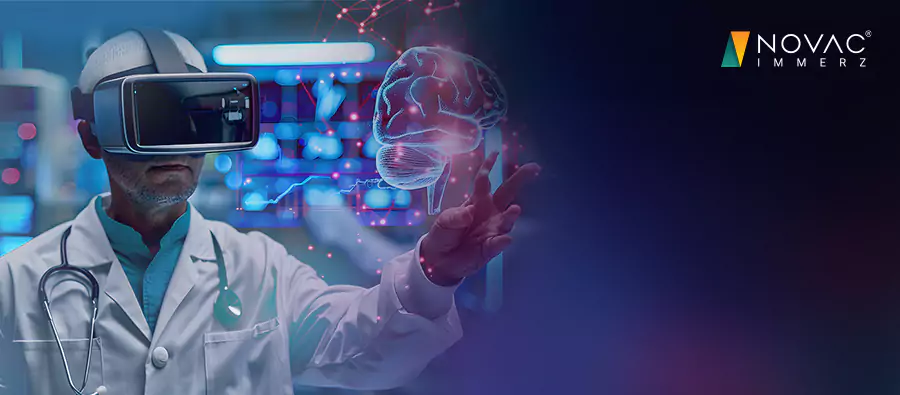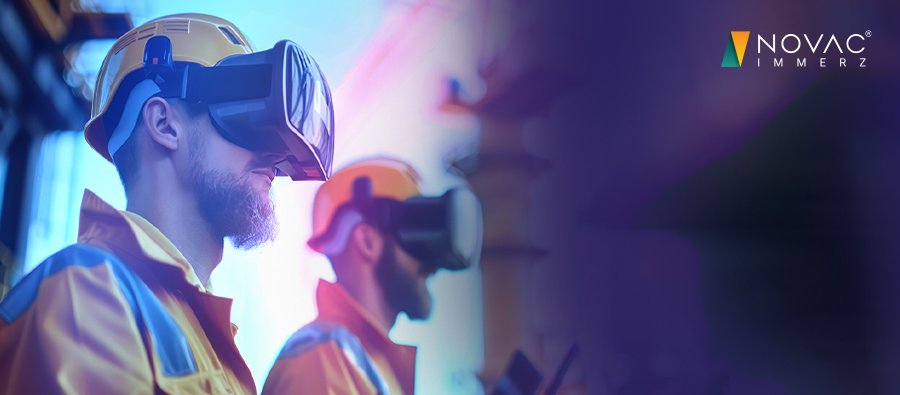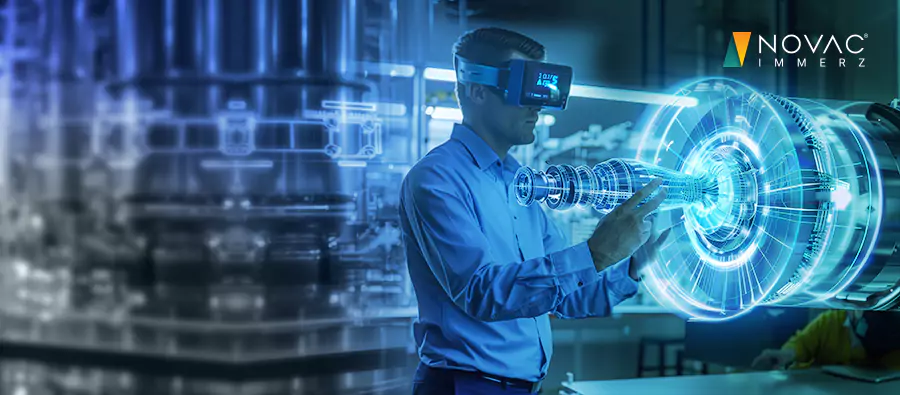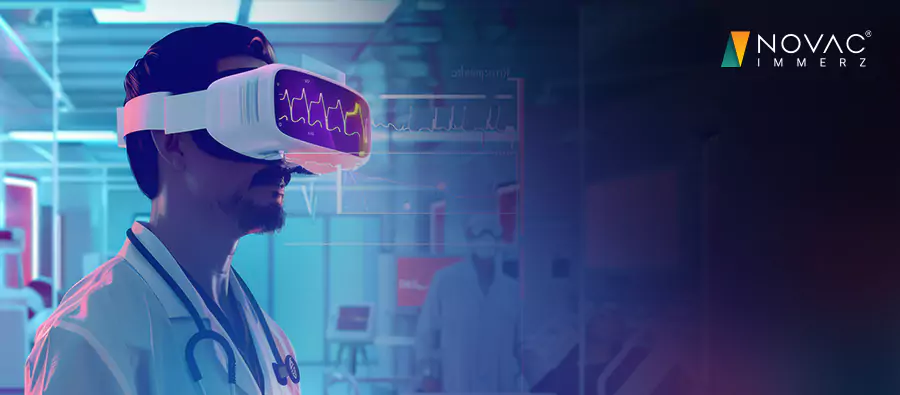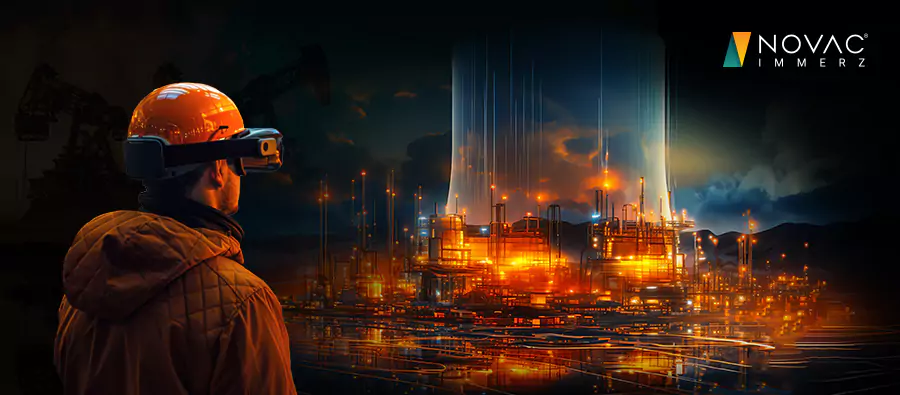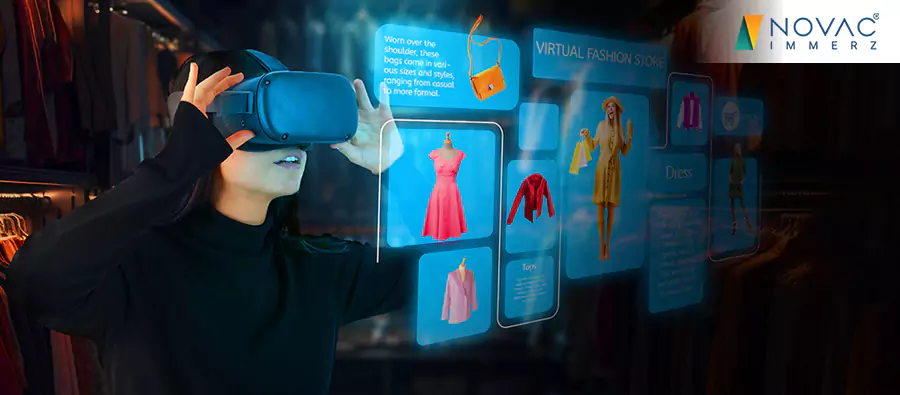Overview
Buying, selling, and marketing property is undergoing a significant revamp. In today's times,
prospective buyers can watch an AR video or wear a VR headset to view apartments and homes.
Immersive technologies create a 360-degree virtual environment and remove the need for a
physical visit. In the future, Augmented Reality and Virtual Reality will make deep inroads
into the real estate industry. In addition to saving time and money, this approach will
increase buyer interest in property offerings, eventually accelerating sales and leading to
quicker closure of lucrative deals.

What are the Use Cases of AR VR in the Real Estate
Industry?
The potential of Augmented Reality Solutions in real estate is vast. 3D floor
plans enable interested buyers to visualize rooms on specific house floors. They can
walk through the home and suggest changes according to their design and style
requirements. Buyers can also modify wall colors and customize their interiors.
Augmented Reality will offer the same feeling as walking inside a
physical space. Property investors can understand the layouts and sizes of rooms. AR
provides a greater sense of cognitive engagement. Further, 3D floor plans include
setting dimensions, dragging and dropping furniture items and choosing room shapes.
Computer vision technology will offer a comprehensive preview through panorama images and 3D
scanning of apartments and homes. Staging using Virtual
Reality Solutions is a viable alternative to physical staging. Real-time rendering
will highlight the property's essential amenities. Real estate developers can also stage
vacant plots and discover interested buyers quickly.
Virtual reality will help property investors make the right decisions. Developers can create
a virtual environment by simulating the height and size of homes. This helps establish an
emotional connection with buyers, who can examine every nook and corner of the property.
A virtual representation of a building is created. It bridges the gap
between the real and digital worlds. Real estate developers can use 3D visualization
and optimize the physical space using positional tracking. Digital twins offer
advantages like real-time asset monitoring, higher satisfaction amongst occupants,
better communication between owners and tenants, and greater return on investment.
Developers and agents can arrange virtual guides for buyers while
they experience a property. Interactive floor plans and 360-degree panoramic images
offer an immersive experience. Investors will know how a project looks after it is
fully complete. It helps them make an informed buying decision.
Novac Immerz’s AR VR Solutions for Real Estate Industry
Real estate developers can easily promote their property and increase sales
by organizing virtual tours with cameras throughout a home. Potential buyers can see the
property listings online. High-definition videos and high-resolution photography will
guarantee immersive viewing.
The benefits of using AR and VR in the Real Estate Industry include instant
previews of properties, multi-platform compatibility, and greater visibility. Property
developers will experience a rise in occupancy and more time spent on-site by buyers.
- Product/ Service Visualization
Different angles and colors can highlight products like furniture and
interior design in a virtual environment. Prospective buyers can try various designs and
styles and choose those that perfectly suit their homes.
Immersive technologies like Augmented Reality and Virtual Reality are handy
in training construction workers. They can equip themselves with fire safety protocols,
client communication, and dialogue simulation.
Real estate developers can showcase their properties to domestic and
international buyers. Virtual Reality will offer visitors a 3-D walkthrough and eliminate
the need for travel. Builders can opt for either guided tours or interactive visits. They
can also utilize pre-selling opportunities by showcasing properties yet to be fully
developed.
Real estate developers can include maps, brochures, floor plans, and property
listings. It will help efficiently interact with prospects. Therefore, virtual Reality will
assist property owners in broadening their reach.
- Architectural Visualization
Marketing a property yet to be fully developed is quite simple. 3D rendering
will help developers extract commercial value by realistically portraying the spaces and
finishes. Buyers can understand design elements through 3D
Walkthrough Services, which helps reduce promotional campaign costs.
Once a buyer has decided to purchase the property, they may want to make some
tweaks to the interiors. Integrating online stores will help investors buy curtains,
furniture, and lighting. It creates a personalized feeling once they move into the property.
Realtors will also get an additional source of income by including virtual commerce
elements.
Wrapping Up
As mentioned above, AR VR in Real Estate can transform property management. In the future,
mixed Reality in real estate will play a crucial role in property visualization by merging
3D models with the physical environment. Besides improving the buying experience, immersive
technologies will accelerate the construction and design process.
Want to leverage futuristic technology for your real estate business? Team up with Novac
Immerz, a leading AR VR Development
Company, and attract property investors.

Pradeep, Vice President

Pradeep heads Novac Learning, the digital learning vertical of Novac Technology Solutions
Pvt. Ltd., where he drives innovation in training methodologies. Under his guidance,
Novac Learning supports organisations in seamlessly transitioning from traditional to
digital training formats by implementing cutting-edge Learning Management Systems.
Pradeep also leads the immersive technology solutions division at Novac Immerz, where
his team crafts immersive experiences for training and marketing purposes.




